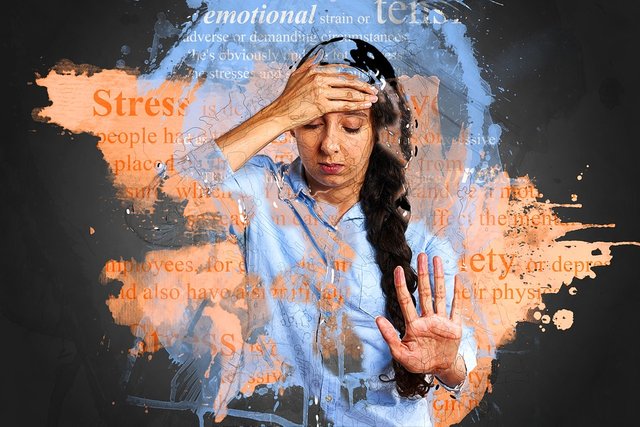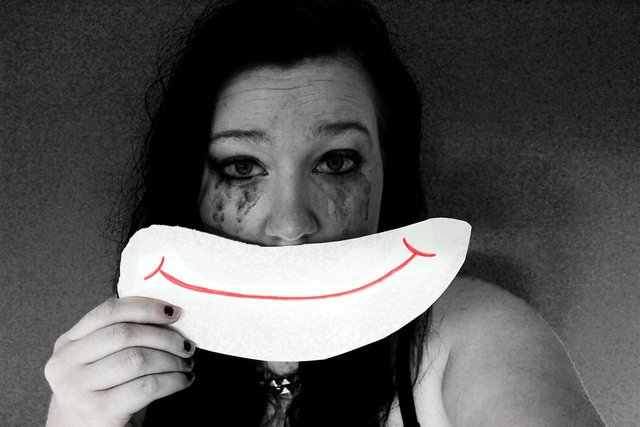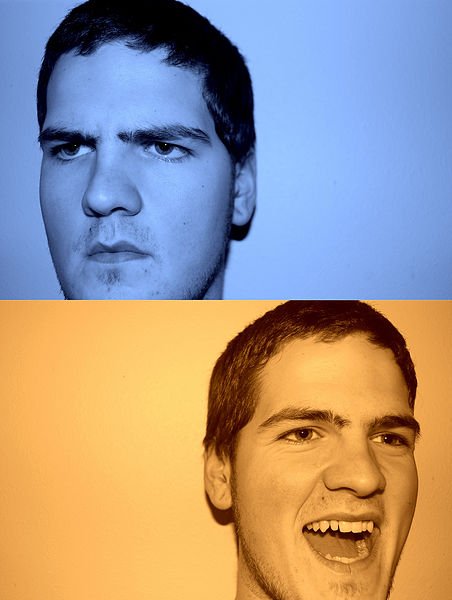EVERYTHING YOU NEED TO KNOW ABOUT MOOD DISORDER #4

Image Source: Pixabay
Hello again everyone, welcome to another post on everything you need to know or must know. In our last post we just concluded the topic on panic disorder and agoraphobia. Here is a link to that 1,2,3

A Life Lost For the moment
Susan never thought that she would be the one who needed help. For the first 24 early period of her existing life, she was the one on whom everyone else depended for support. Yet from the recent six months, her depression had gradually gotten worse until she could no longer show concern for herself. She had stopped going to work a while ago, and she rarely even left her apartment. She stopped answering the phone and eventually unplugged it from the wall.
She would doze up to 16 hours a day and sometimes would just lie in bed for several hours, unable to muster the energy to get up. She barely ate and had lost over 25 pounds for the last six months. When she was depressed before. In fact, she had various unpleasant bouts of depression starting in early high school, but nothing like what she experienced now. She could not pinpoint when it started. It was descending slowly into a quicksand of despair. She felt that there was no reason to live and would lie in bed thinking that she was going to kill herself if only she had enough energy to do it.
A Wildfire out of Control
On the current day, John has gotten into three screaming matches, threatened four different people with law suits, and come up with four ‘’can’t miss’’ business ideas-and it’s not even 8:00 A.M. One can only imagine what he might do if he were not on a locked psychiatric ward. John did not sleep last night. He often skips sleeping when he is ‘’cooking’’-his term for the manic energy that periodically overtakes him. He is too wound up to sleep and too impatient to deal with the slow people around him.
The energy to burn and enough ideas to fill an encyclopedia. He talks so quickly barely understanding him and switches topics so frequently that his train of thought is impossible to follow. Ask him for clarification, and he will possibly scream at you, calling you an idiot.
He says he feels great, and he looks like he is bubbling over with excitement, although in a flash he can turn frighteningly hostile. He tells the doctors that he is not interested on taking medication, but he takes it without complaining, saying it can’t hurt.

Image Source: Pixabay
He inspects himself into the hospital after his wife threatened to leave him and take the kids. Despite being the most productive sales reps in his company-outselling the next three sales reps put together-john was fired from his job for his outrageous behavior just a week before being hospitalized. It is not the first job he has lost, nor is it likely to be the last. John is feeling assured that he will get an even better job once he is out of the hospital, although in weeks now, when he comes down from his high, he will be terrified of having to put his life back, yet another time.
We all feel ‘’down’’ occasionally, sometimes even depressed. But most people never get as depressed as Susan. She is so depressed that she can no longer take responsible of her most basic needs. Everyone has a good day, when it is easy to feel confident and take on challenges, but most people never experience the out-of-control high john experiences, these cases represent extreme examples of mood fluctuations. Mood is one’s general emotional feeling that may vary gradually over time.
For example, Individual may notice sadness or be elated. The term affect describe the more momentary behavioral manifestations of
- Mood: A general emotional feeling that may vary gradually over time.
- Affect the more momentary behavioral manifestations of mood.

Mood for example, An individual who are depressed may still smile or laugh in certain situations. Their mood is depressed, but their affect is responsive to the circumstance. With severe depression however, affect is no longer responsive to environmental circumstances. Mood fluctuations are normal, and they are usually stimuli to the general pattern of life experiences.

Image Source: Wikimedia
Shifts in the mood are normal, but in some people the mood shifts are more dramatic, which happen more frequently, or last longer. In most cases, the individual is suffering from a mood disorder. Depression is mood feature by sadness and loss of energy and pleasure in life. In distinguishable, mania is mood characterized by excessive energy, extreme confidence, euphoria, and irritability. The DSM distinguishes a unipolar depression & bipolar disorder.
Unipolar depression is characterized by a pattern of serious depressive periods with no traces of manic periods. In contrast, bipolar disorder is a feature by pattern mood fluctuations in which the mood is sometimes depressed and sometimes manic. One might expect there to be a third condition-unipolar mania-but this diagnosis does not exist. Individuals who have shown only manic episodes are given the analysis of bipolar disorder because they are assumed to be at risk for depression as well, and the study suggests that this assumption is justified (APA. 2000).
Although virtually everyone has experienced uncomfortable mood changes, most people do not experience the intense mood swings that occur in mood disorders. However, many famous figures have suffered from such mood disorders, and their struggles with these inner demons were
Mood disorder is a disorder feature by mood shifts that are more dramatic, more frequent, or last longer than what is considered normal.
Depression is a mood that is feature of sadness and loss of energy and pleasure in life.
Mania is a mood feature by excessive energy, extreme confidence, euphoria, and irritability.
Unipolar depression is a disorder feature of a pattern of serious depressive periods with no records of manic or hypomanic.
Bipolar disorder is a pattern of mood fluctuations in which the mood is sometimes depressed and sometimes manic.

Image Source: Wikimedia
Abraham Lincoln was subject to severe periods of depression all through his public life. Nevertheless, he is known by many to be one of America’s greatest presidents and was a capable leader during a very difficult time in history. Many capable people periodically experience depression and yet manage to live pleasing and beneficial life.
Apparently not enough to prevent them from achieving greatness. Two American presidents-Abraham Lincoln and Calvin Coolidge-suffered from recurrent depression. A vice-presidential candidate-Thomas Eagleton-was forced off the ticket in 1972 when it was learned that he suffered recurrent severe depressions. Deep depressions were also a part of the lives of Mike Wallace and Joan Rivers, Bipolar disorder has plagued a variety of artists and other creative people, including Vincent Van Gogh, Ernest Hemingway, Virginia Woolf, Eugene O’ Neill, and Patty Duke (Andreasen, 1980).
This topic will cover the two important classes of mood disorders-depression and bipolar disorders-including descriptions, theories about their causes, and current treatments. The topic closes with a discussion of suicide.

Summary
Having mood disorder plays a significant role in our daily life. There are some of it which affect us in our bed, work or in a situation we feel like it will not occur. Prepare your mind to find a proper way of eliminating this mood changes. More of this will be coming soon.
Thanks for Reading.
Reference List:
- What is a mood disorder?
- Bipolar Disorder
- Mood Disorder Symptoms, Causes and Effect
- Mayoclinic.org/diseases-conditions/mood-disorders/symptoms-causes
- Unipolar Depression: Everything to Know
Further Reading:
- Akiskal HS, Bourgeois ML, Angst J, et al. Re-evaluating the prevalence of and diagnostic composition within the broad clinical spectrum of bipolar disorders. Journal of Affective Disorders. 2000;59(Supp 1):S5–30
- Merikangas, KR, Jin, R, He, J-P et al. Prevalence and correlates of bipolar spectrum disorder in the world mental health survey initiative. Arch Gen Psychiatry. 2011; 68: 241–251
- Thase, M.E., Kupfer, D.J., Jarrett, D.B. Treatment of imipramine-resistant recurrent depression: I. An open clinical trial of adjunctive L-triiodothyronine. J Clin Psychiatry. 1989;50:385–388.
- Bowden, C.L. A different depression: clinical distinctions between bipolar and unipolar depression.Journal of Affective Disorders. 2005;84:117–125.
Great topics and I will be waiting for your future articles regarding this topic. I just want to point out two points:
Overall this article is quite good. People do need to be educated with kind of topic as mood disorders are so prevalent yet because of stigma, they are underdiagnosed.
Thanks for your great comments, what it entails is that she was having depression in her early stage of life, up till now she could not know when it started and if given the chance she would kill herself,but she didn't.
DSM- diagnostic and statistical manual of mental disorders.
Thanks again.
@saho. Thank you for your response. I knew what DSM stand for. My question which DSM are you quoting from? DSM-4 or 5? Or any other number.
DSM 5
Nice piece bro.
One of my friends ones complained to me that she normally feels depressed for just no cause. Could this be mood disorder?
Kinda of mood disorder, she is experiencing depressive disorder, am writing on that now.
The difference between whats normal and normal is quite difficult to elaborate but in Abnormal Psychology if a person fails to execute establishing good relationships to others or fails to go to work or to school then there really is a problem. Same with what you have quoted above, if the sudden changes of moods shifts from depression or mania or even is very dramatic in nature then the person might be suffering from mood disorders. Psychological disorders only kicks in if it is already disrupting our academic,professional and personal life.
Thanks for the contribution.
🌸